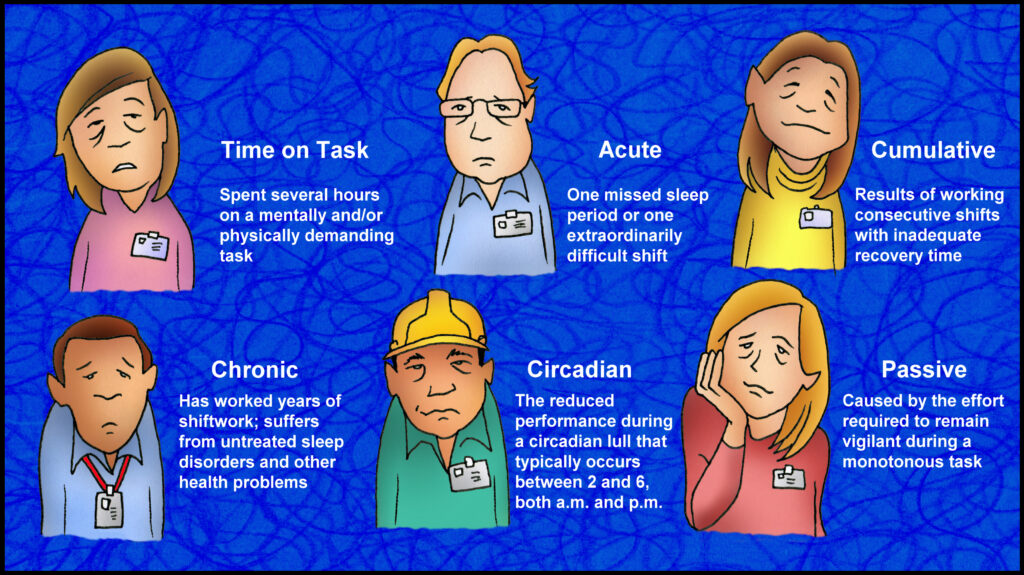The two processes controlling our sleeping and waking periods are the circadian rhythm and sleep/wake homeostasis. The circadian rhythm changes with light and dark that is sensed in the eye’s retina. When the nerves in your eye sense the morning light, the suprachiasmatic nucleus (SCN) located in the hypothalamus triggers the release of cortisol, adrenaline, and other hormones that stimulate your brain to wakefulness. At nighttime when it gets dark, the SCN sends messages to a different gland, the pineal gland. It releases melatonin, which makes you feel sleepy. Additionally, adenosine is a molecule that builds in the bloodstream throughout waking hours. As it increases, so do our feelings of drowsiness. Sleep is the only remedy for replenishing energy stores and providing the homeostasis our brains and organs require.
Shift work places demands on the body to push through these naturally occurring processes in order to stay on task. Without proper planning, it’s difficult to get the sleep the body needs to function well and remain in good health. Fatigue is the unwelcomed by-product of any sleep debt.
Fatigue can manifest in a variety of ways. A Controller may commonly experience “Time on Task” or “Passive” fatigue due to the constant effort required to monitor the pipeline during routine operations. Simply standing for an Alertness Exercise or stepping away from the console for a snack can refresh both mind and body.
Our circadian rhythm includes natural highs and lows in energy levels during each 24-hour cycle. We can expect a dip in energy between 2 and 6 both in the afternoon and in the early morning, depending on the shift being worked. “Circadian” fatigue may be alleviated by doing Alertness Exercises, drinking water or a caffeinated beverage, or taking a break from the console.
“Acute”, “Cumulative”, and “Chronic” fatigue are similar because they all refer to missing out on the amount of sleep needed by the brain and body. Acute fatigue happens with one or two inadequate sleep periods. When several periods of inadequate sleep occur, the sleep debt accumulates often resulting in irritability, memory lapses, and impaired immune system. The most serious type of fatigue is chronic fatigue. This is a product of a lifestyle spent operating on less sleep than is needed for physical and mental recovery. It can lead to health problems such as risk of heart disease, obesity, type 2 diabetes, and cognitive impairment.
Without enough sleep each 24-hour cycle, a sleep deficit is sure to occur. A sleep debt will likely increase feelings of fatigue, but some people can cognitively adapt. Regardless, if lack of sleep becomes a way of life, declines in physical and mental performance will follow.
Returning the body to sleep/wake homeostasis, or baseline, can take days or weeks. Sleeping in on days off, taking naps, and adding an extra 30-60 minutes of sleep into consecutive sleep periods is necessary for recovery from a sleep deficit. Talk with your doctor if getting enough sleep eludes you.
MANAGING FATIGUE EDUCATIONAL PROGRAM | Scarlet Knight © 2021 Please Distribute to Others.




